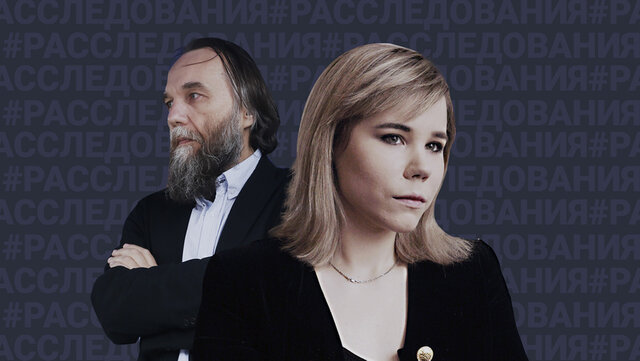The murder of Daria Dugina and the attempted murder of her father, Alexander Dugin, last Saturday is a major news story of global significance. It is also important for Muslims.
But first, we want to explain why we are not writing about “Alexander Dugin’s daughter,” but about Daria Dugina and her father.
In the first case, it might give the impression that Daria Dugina was killed because she was her father’s daughter, which would be barbaric. But this is not the case. The deceased herself was an active political figure, a propagandist of the Kremlin’s aggressive policy, involved in various international projects, etc.
And the fact that she acted together with her father indicates that this was a kind of family political firm or, if you will, a dynasty. But this was a dynasty of ideologues of international Russian terrorism, so it is not surprising that what they stood for – terrorism, murder, war – eventually caught up with them.
And this applies not only to Daria Dugina’s father, who justified wars against Muslims in Syria or Ukraine, but also to Daria herself, who called for tribunals against Ukrainian soldiers and handing them over to their enemies for execution.
As for Alexander Dugin, those who do not know his relationship to the affairs of the Islamic world should type the word “Dugin” into the search section at the top of our website and read our numerous materials on the subject. Dugin is a conscious and consistent enemy of Sunni Islamic projects and forces.
And one thing that needs to be mentioned separately is the talk about him being a friend of Turkey and Azerbaijan and, conversely, an enemy of Armenian nationalists, some of whom are openly celebrating his death.
Dugin has been actively and for a long time trying to involve Turkey in the so-called Eurasian bloc together with Russia, China and Iran, trying to make it abandon the so-called neo-Ottoman project that conflicts with their interests. He also tried to do the same with Azerbaijan, using the Karabakh issue as the chosen instrument, considering its paramount importance for him.
Moreover, after the Velvet Revolution in Armenia, the Kremlin, which turned a blind eye to Azerbaijan’s recapture of most of Karabakh, decided to kill two birds with one stone – to win Baku’s favor and to show Yerevan, which had slipped out of its grasp, that it was incapable of anything without its master.
We have written many times about the Kremlin’s game in Karabakh, but even without touching on it, we can say the following. If Dugin, unlike most of the Russian imperialists, was not a lobbyist for pro-Armenian policies, it is to his advantage. However, this is where his positive attitude towards Muslims ends, because in all other areas he pursued an anti-Muslim policy.
Nevertheless, it should be emphasized that political disagreements are not in themselves a reason to endorse the use of violence against opponents. However, the problem is that the boomerang of this violence was launched by Russian aggressive ideologists and activists themselves. And now it has come back to them.

